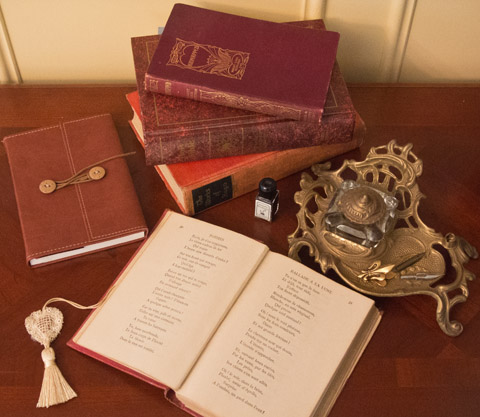OR
You Can't Judge a Book by its Word Count

When a friend’s little boy found out I was a writer, the first thing he asked me was: ‘How big is your book?’ Nobody had ever posed that question before and I was quite taken aback. What exactly did he mean? Did he want to know the dimensions, or was he referring to the number of pages?
Impatient with my hesitation, the little boy persisted, ‘How thick is it?’
So I indicated the width of the spine with my fingers. (MR CHEN'S EMPORIUM and THE JADE WIDOW are the same length - about 350 pages. I'm not sure how it happened; it certainly wasn't planned.)
‘Wow!’ the boy replied.
No doubt that seemed like a very big book to a seven-year-old, but in point of fact, both novels are around the average length for adult commercial fiction. Nevertheless, the boy's reaction reminded me that a weighty tome possesses a certain gravitas, whether it deserves it or not.
Publishers tend to have a preferred word count for novels. It's a range rather than a specific number and it will differ from publisher to publisher and according to genre. The minimum length might be around 70,000 words, and it could range up to 200,000 and possibly more. Look at WAR AND PEACE - if I recall correctly, it's over half a million words! Tolstoy aside, a novel can, of course, be too long. I won't mention any specific examples, but I'm sure you've encountered a few that could have done with a heavy pruning.
As a reader, it’s been my experience that some of the finest novels are contained within the slimmest of volumes. George Orwell’s ANIMAL FARM, for instance, is only 41,100 words (wiki.answers). My well-thumbed copy of THE GREAT GATSBY – with Robert Redford and Mia Farrow on the cover – is 188 pages. Ian McEwan’s beautifully crafted novel, ON CHESIL BEACH is 166 pages (2008 Vintage edition) with generous spacing between the lines. I suspect it's about 45,000 words. Likewise, Ray Bradbury’s ground-breaking FAHRENHEIT 451 (discussed elsewhere on this site).
There can be something intrinsically elegant – not to mention covetable – about a slim volume. Take Alan Bennett’s charmingly seditious novella, THE UNCOMMON READER. The publishers have played up its brevity by producing a small hardcover book (a mere 18 x 13 x 1.25cm – yes, I measured it!) with an embossed dust jacket and patterned endpapers. When I saw it in the bookshop, I just had to have it!
Recently I’ve written a manuscript, which is not quite 50,000 words in length. The story revolves around a quirky cast of characters, brought together by a common interest. So far, only my family and a few trusted friends have seen it. I really like this book, but the problem is that it's just too short. Could I pad it out with additional subplots or incorporate extra scenes? I don’t think so. I’ve said what I have to say, and to my mind, it’s finished. So where do I go from here? Well, I’ll probably put it in the bottom drawer for a while. I hear novellas are coming back into fashion, so you never know . . .
Do you have any ‘thin’ novels that you really love? Please let me know.
Deborah O’Brien
September 2013
